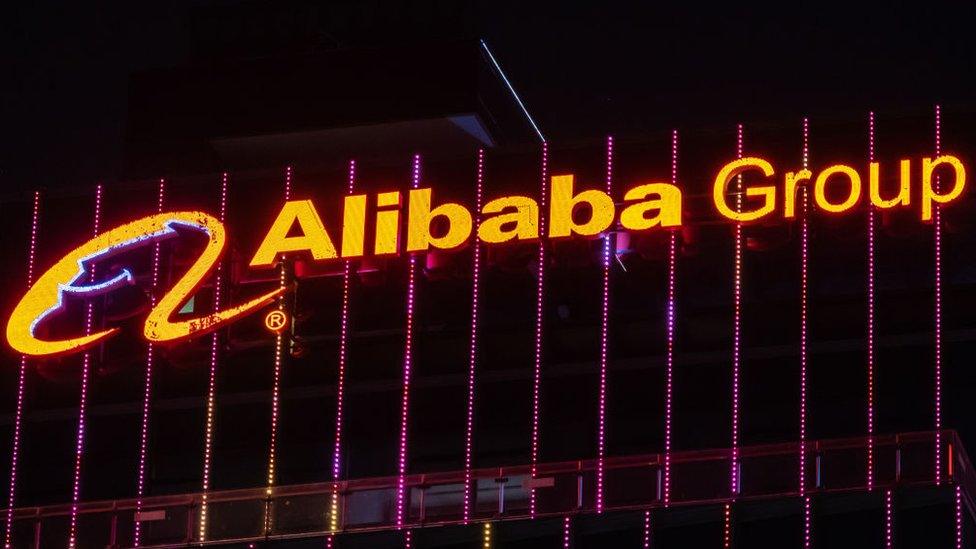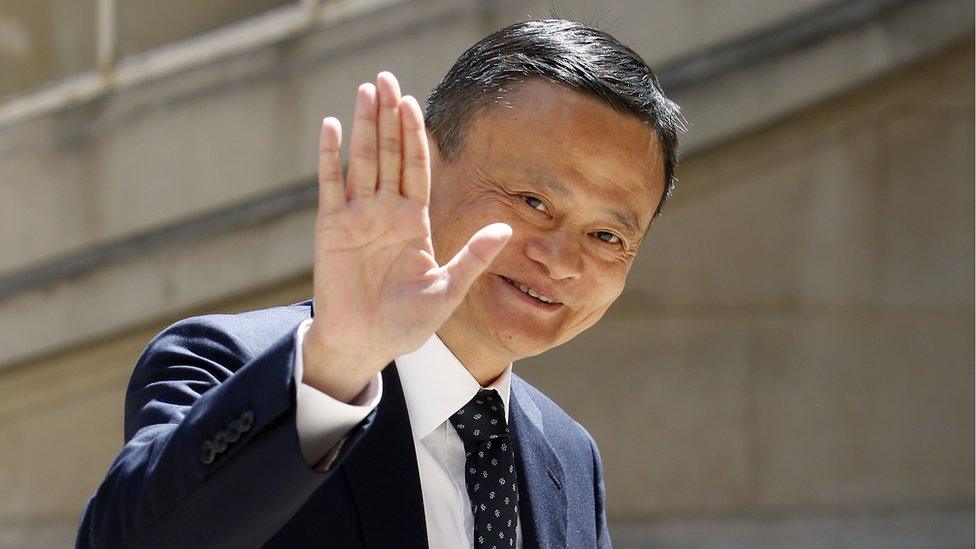Alibaba shares jump in blockbuster Hong Kong debut
- Published

Alibaba chairman Daniel Zhang (centre) flanked by company executives and a Chinese official at the Hong Kong stock exchange
Shares in Chinese e-commerce giant Alibaba have surged in its Hong Kong trading debut in one of the year's most anticipated stock offerings.
The firm, which is already traded in the US, raised around $11.3bn (£8.8bn) in its secondary listing.
At the launch, Chairman Daniel Zhang cheered Alibaba's return to Hong Kong.
The move is seen as a boost for the city amid fears long-running protests have tarnished its reputation as a financial hub.
In opening moves on Hong Kong's Hang Seng Index on Tuesday, Alibaba's stock jumped more than 6%.
The company was met with strong appetite for its shares, priced at HK$176 each.
Mr Zhang struck the gong at the ceremony at the city's exchange and welcomed the firm's return "home" to Hong Kong.
He was joined by the territory's Financial Secretary Paul Chan and former Hong Kong chief executive Tung Chee-hwa.
The Hangzhou-based firm had originally considered a Hong Kong initial public offering (IPO) in 2013, but opted for New York after failing to secure regulatory approval in the Asian territory.
Over the years, Alibaba has grown from an online marketplace into an e-commerce giant with interests ranging from financial services to artificial intelligence.
Ahead of its Hong Kong debut, the company said the listing would allow investors across Asia to "participate in Alibaba's growth," as it seeks to tap "substantial new capital pools" in the region.

Alibaba has been listed in New York since 2014
The share sale has knocked Uber off the top spot as this year's biggest IPO, according to Dealogic data. The ride-sharing firm raised $8.1bn in its New York float in May.
Protests weigh on economy
The move to go ahead with the Hong Kong listing comes after Alibaba delayed plans to do so earlier this year, amid ongoing unrest and the US-China trade war.
The long-running protests have hurt the economy, which has fallen into recession, and knocked business confidence in the city.
The protests started in June against plans to allow extradition to the mainland - which many feared would erode the city's freedoms.
Hong Kong is part of China, but as a former British colony it has some autonomy and people have more rights.
While the extradition plans were withdrawn in September, the demonstrations have continued, with protesters calling for an independent inquiry into alleged police brutality, and democratic reform.
- Published22 November 2019
- Published11 November 2019

- Published10 September 2019
